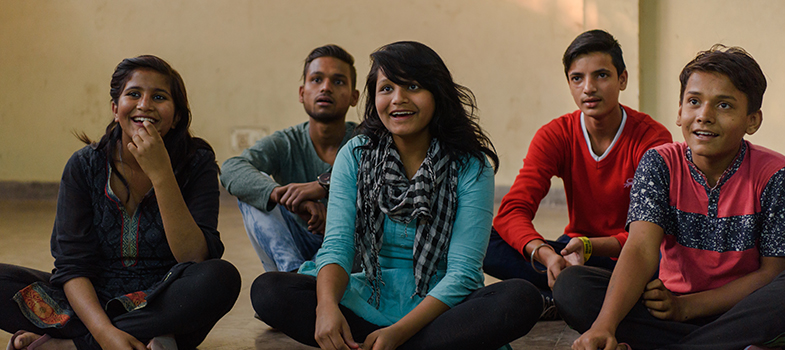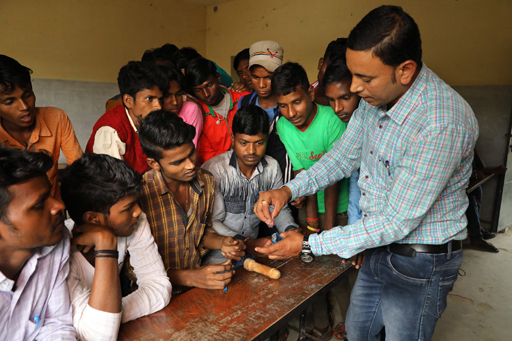2.5 What does the media tell us about sex?
As an educator it can be useful to keep an eye on the kinds of media that young people in your community may be seeing. Talking about different media is often a good way of including discussion about sexual pleasure in your work with young people. Keeping up to date with the media is also essential for helping young people to navigate the often confusing messages they are receiving about their sexual desire, rights and health.
We are bombarded with messages about gender roles and sexuality, sometimes without even realising it. In order to help young people understand the messages they receive from the media today, it’s important that you have a good understanding of what the media is saying about what’s ‘normal’ or ‘expected’.
Activity 2.5: What does the media tell us about sex?
Discussion
This is a useful way to start to think about how we can create relatable education programmes which help young people better understand the messages they are receiving about sexuality, and that support them to challenge ‘norms’ and stereotypes around gender and sexuality which may not be realistic.
Conclusion
In this learning session, you learnt about the benefits of including sexual pleasure as part of Comprehensive Sexuality Education (CSE). You also learnt about how important it is to provide a learning environment which includes an open, honest and wide-ranging discussion of pleasure. This can be a great place to ensure questions can be welcomed and answered accurately and sensitively.
In most societies, constructive discussion of sexual pleasure aimed at young people is not encouraged. This really constitutes a denial of their sexuality, and indeed, their sexual rights. Moreover, not openly and fully talking about sexual pleasure often means that young people are ill equipped to deal with all the possibilities and opportunities in their sexual futures.
In this learning session, you learnt that it is important to recognise that sexual pleasure is a fundamental aspect of all people’s quality of life/health and well-being.
Finally, in this learning session, you should have considered the many different messages about sexual pleasure that young people encounter in their day-to-day lives. Young people get messages about sexual pleasure from different places and at different ages. These do not necessarily provide accurate information or follow-up support.
In the next learning session, we move on to talk about how and why so many educators find it hard to integrate sexual pleasure into the work they do with young people.
Now you can go to Learning Session 3 [Tip: hold Ctrl and click a link to open it in a new tab. (Hide tip)] .
2.4 Sexual pleasure and disability


